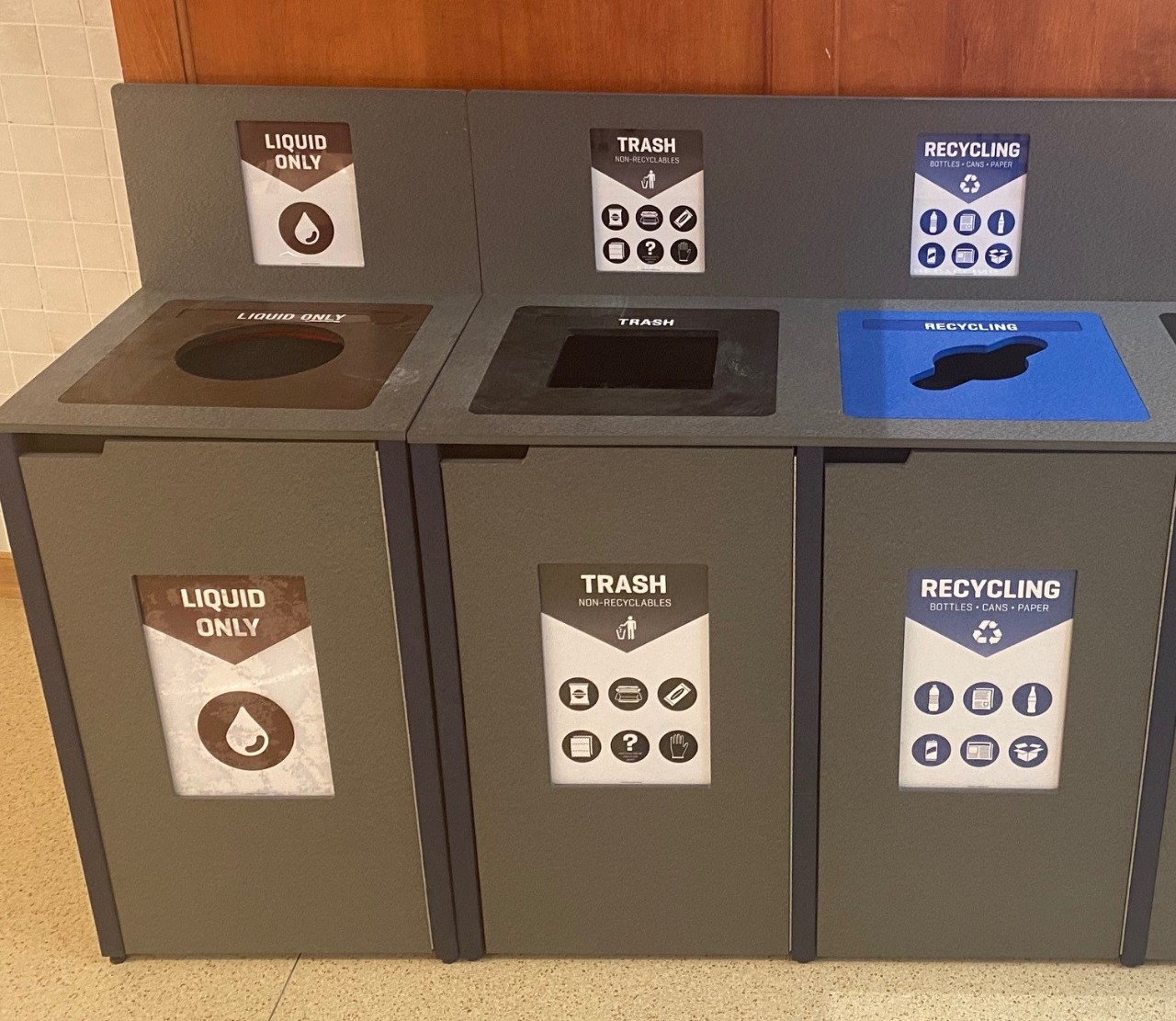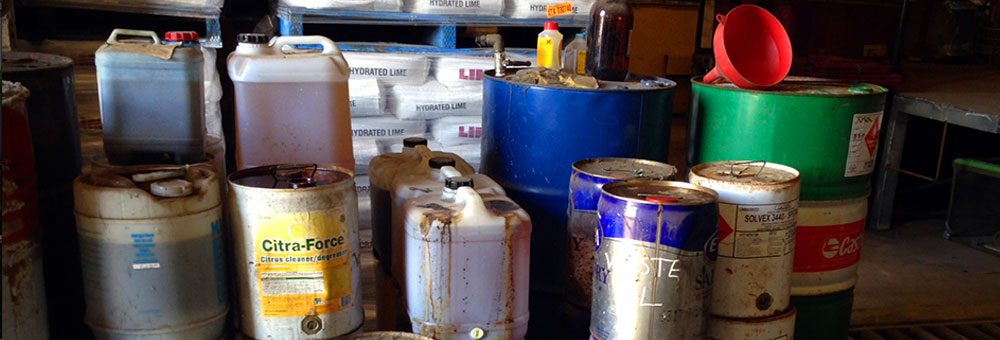Leading Industrial Wastewater Treatment Solutions: Making Sure Compliance and Effectiveness
Leading Industrial Wastewater Treatment Solutions: Making Sure Compliance and Effectiveness
Blog Article
Comprehending the Comprehensive Process of Liquid Waste Disposal: Finest Practices and Environmental Influence Considerations
The monitoring of fluid garbage disposal is a complex concern that needs a complete understanding of different finest practices and their connected environmental effects. From the types of liquid waste produced to the techniques used for collection, therapy, and final disposal, each action plays a vital duty in securing ecological communities and public health. As regulative standards evolve and modern technology advances, the conversation around these procedures ends up being increasingly significant. What implications do these adjustments hold for future sustainability initiatives, and how can stakeholders ensure that they are adequately dealt with?
Kinds of Liquid Waste
Recognizing the various kinds of fluid waste is crucial for reliable monitoring and disposal methods. Liquid waste can be generally categorized right into a number of types, each requiring distinct handling and therapy strategies.
Industrial liquid waste frequently has hazardous materials, including heavy metals, solvents, and chemicals, created throughout manufacturing procedures. These wastes necessitate rigorous regulative conformity to secure human wellness and the atmosphere. Residential liquid waste mainly describes wastewater produced from households, consisting of sewer and greywater, which, although much less toxic, can still position significant threats if incorrectly handled.
Agricultural liquid waste, including runoff from farms, commonly has plant foods and pesticides that can lead to ecological deterioration otherwise dealt with properly. Clinical fluid waste, generated from health care centers, includes polluted liquids such as bodily liquids and chemicals, needing specialized disposal techniques to protect against infection and environmental contamination.
Last but not least, oil and oil waste, normally produced by restaurants and vehicle markets, can cause serious obstructions in drain systems otherwise taken care of correctly. Recognizing these categories promotes targeted methods for treatment, compliance with laws, and reliable disposal approaches, ultimately advertising environmental sustainability and public health and wellness security.

Collection Methods
Effective collection approaches are important for the proper monitoring of fluid waste, guaranteeing that it is gathered safely and efficiently prior to treatment or disposal. Various methods are employed depending on the sort of fluid waste created, the volume, and the certain attributes of the waste.
One common method is the usage of specialized collection tanks or sumps, which are developed to capture fluid waste at the source. These systems commonly integrate pumps that promote the transfer of waste to larger storage space containers or therapy facilities. In addition, mobile collection units geared up with vacuum cleaner innovation are utilized in situations where waste is created periodically or in hard-to-reach places.
For commercial setups, closed-loop systems can properly decrease spills and leakages, permitting the recuperation and reuse of fluid waste. It is likewise essential to educate workers on proper collection procedures to alleviate dangers connected with unsafe substances.
Moreover, implementing routine upkeep timetables for collection equipment guarantees optimum performance and safety. The integration of innovative tracking systems can boost collection performance by providing real-time information on waste degrees and prospective hazards. Generally, efficient collection methods are foundational to lasting fluid waste administration practices.
Therapy Processes
Treatment procedures play a crucial role in the administration of liquid waste, changing possibly harmful products into recyclable sources or risk-free effluents - liquid waste disposal. These processes can be generally classified into physical, chemical, and biological approaches, each tailored to address particular pollutants present in the waste stream
Physical therapy techniques, such as sedimentation and purification, work by removing put on hold solids check this site out and particle matter. These methods are often the primary step in the therapy chain, efficiently minimizing the tons on succeeding procedures. Chemical treatments entail using reagents to counteract hazardous substances, speed up heavy steels, or oxidize organic toxins, thus boosting the safety and security of the effluent.
Biological therapy procedures, consisting of turned on sludge systems and anaerobic food digestion, utilize on the all-natural capacities of microbes to weaken raw material. These techniques are specifically reliable for wastewater having naturally degradable toxins. Advanced therapy technologies, such as membrane filtering and advanced oxidation processes, are increasingly used to accomplish higher degrees of filtration.
Incorporating a mix of these treatment approaches not only ensures compliance with governing standards however likewise advertises environmental sustainability by recouping valuable sources from fluid waste.
Disposal Options
Exactly how can companies ensure the liable and safe disposal of liquid waste? Effective disposal options are crucial for securing public health and wellness and the environment. The primary methods consist of land incineration, treatment, and disposal complied with by discharge into metropolitan wastewater systems.
Land disposal entails the cautious control of liquid waste in marked land fills, making certain that it does not leach into surrounding soil or water. Incineration, on the other hand, topics liquid waste to heats, converting it right into ash and gases, which call for appropriate filtering to reduce discharges. This approach appropriates for contaminateds materials that can not be dealt with through conventional means.
In situations where liquid waste can be treated, companies may go with chemical or organic treatment procedures to neutralize damaging components before releasing the dealt with effluent right into municipal systems. This path typically lines up with governing needs, ensuring that the effluent satisfies safety and security standards.
Eventually, companies should conduct comprehensive analyses of each disposal choice to identify its feasibility, thinking about aspects such as waste structure, regulative conformity, and prospective threats to wellness and the atmosphere. By choosing ideal disposal approaches, services can add to an accountable waste administration technique.
Ecological Influence
The environmental impact of liquid waste disposal is a crucial consideration for companies seeking to minimize their ecological impact. Additionally, the discharge of neglected or improperly treated waste into surface waters can result in eutrophication, leading to oxygen exhaustion and the subsequent fatality of fish and various straight from the source other microorganisms.

To reduce these influences, organizations should adopt best practices such as applying strenuous waste treatment procedures, advertising recycling and reuse, and sticking to governing criteria. By taking a proactive method to liquid waste administration, entities can significantly reduce their ecological impact while supporting sustainable advancement goals. Inevitably, an extensive understanding of the environmental impacts related to liquid waste disposal is essential for informed decision-making and liable stewardship of natural deposits.
Final Thought
Efficient management of fluid waste is essential for safeguarding ecological stability and public health and wellness. By adopting ideal methods in disposal, collection, and therapy, alongside adherence to regulatory standards, the possibility for unsafe contamination of environments can be considerably reduced. Continual improvements in modern technology and procedures add to lasting waste monitoring efforts. Eventually, a comprehensive understanding of liquid garbage disposal not just mitigates ecological effects yet additionally fosters a commitment to responsible resource administration and environmental stewardship.
The management of liquid waste disposal is a diverse problem that calls for a detailed understanding of various finest methods and their linked environmental impacts. From the types of fluid waste produced to the methods utilized for collection, therapy, and final disposal, each action plays a crucial role in protecting environments and public health and wellness.The ecological influence of fluid her comment is here waste disposal is an essential consideration for organizations seeking to lessen their environmental impact. Eventually, a detailed understanding of the ecological effects associated with fluid waste disposal is important for notified decision-making and responsible stewardship of all-natural resources.
Inevitably, a thorough understanding of liquid waste disposal not just reduces ecological influences yet additionally promotes a dedication to liable source management and environmental stewardship.
Report this page